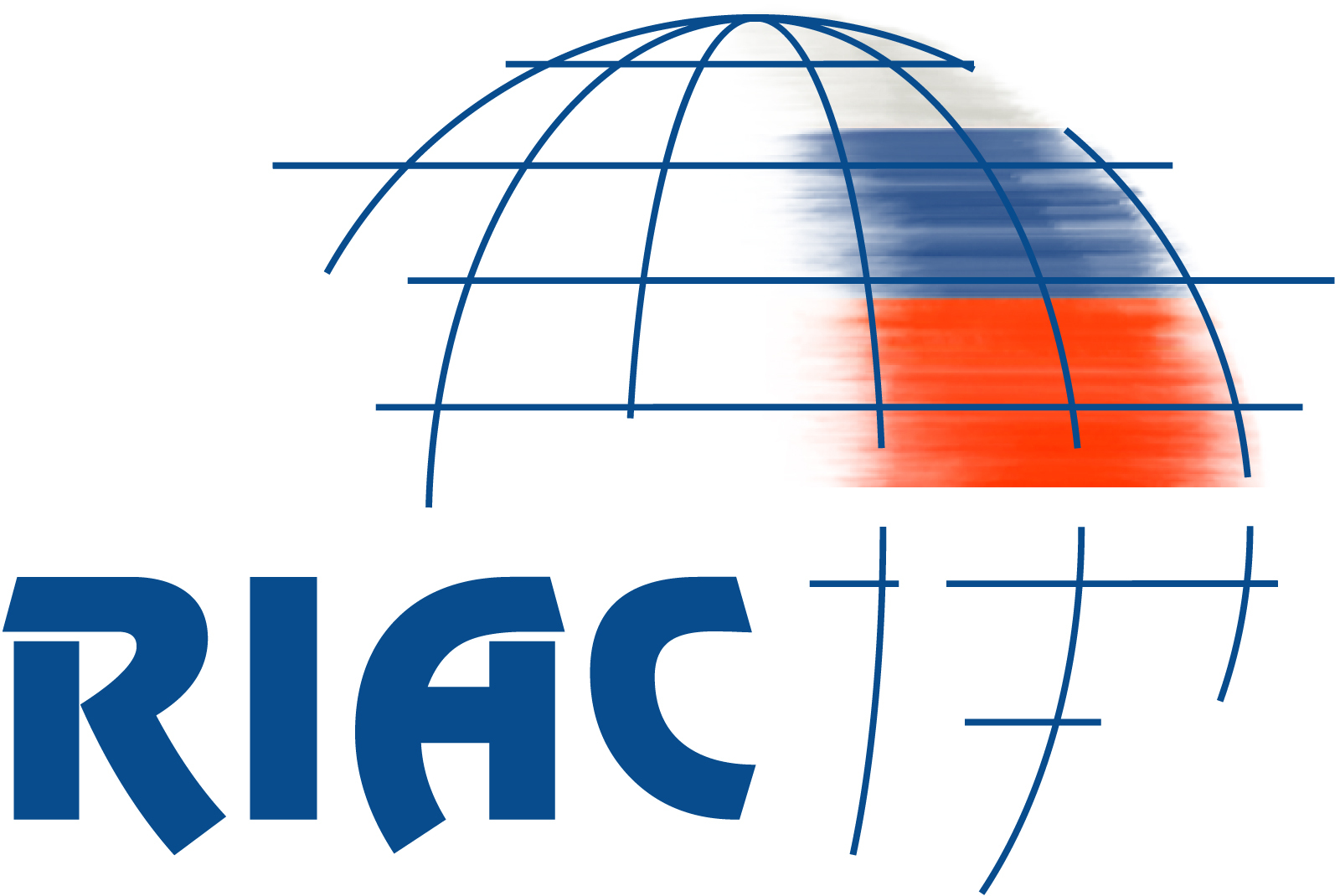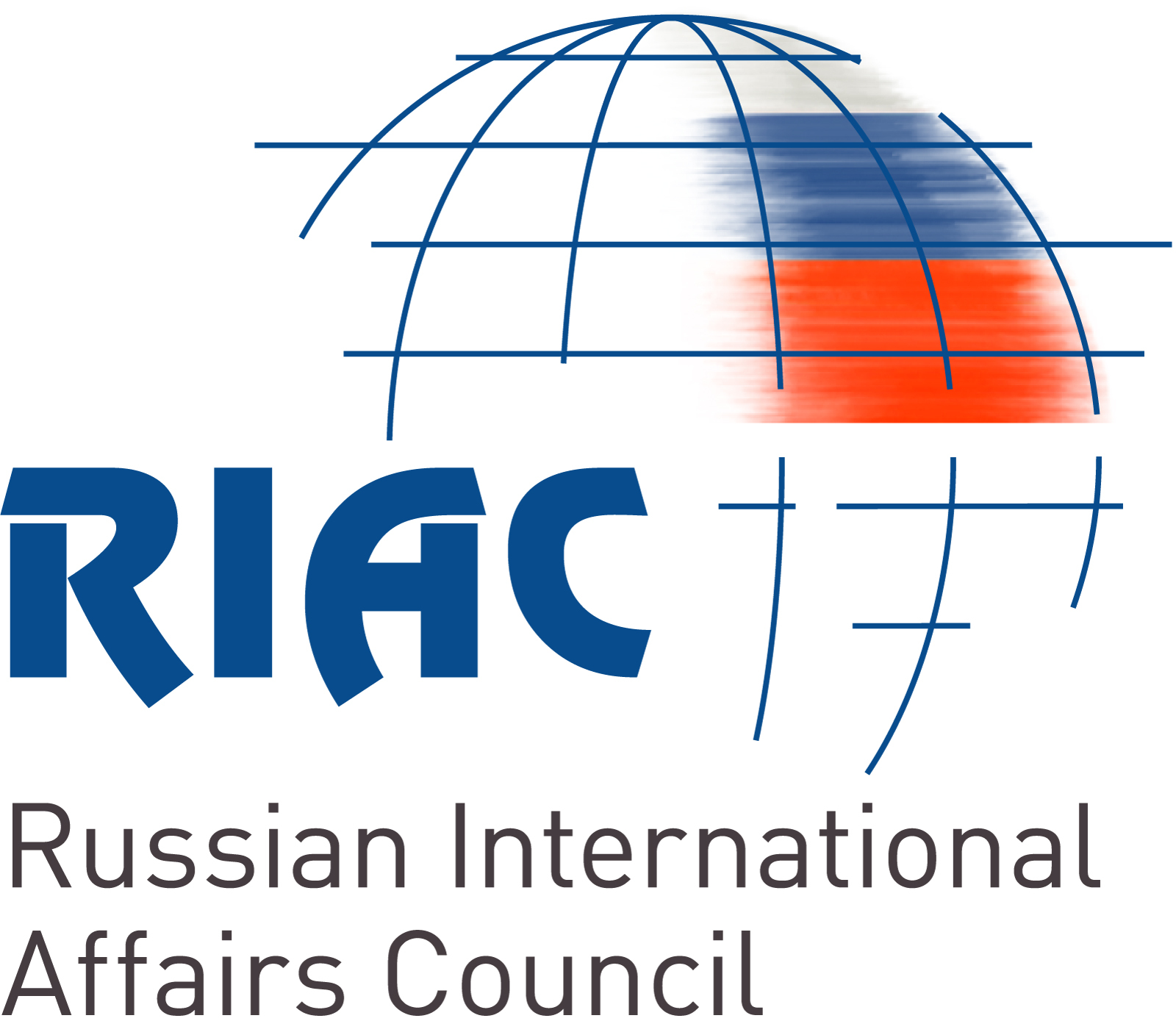RUSSIA IN THE BALKANS
The Evolution of Russia's Presence in Southeast Europe and Russia's New Strategy
Russia in the Balkans
The Evolution of Russia's Presence in Southeast Europe
Russia's foreign policy in the Balkans has undergone major changes over the last three decades. This has happened primarily under the influence of external factors. In the 1990s, the Balkans turned out to be on the periphery of Russia's foreign political and economic interests – Russia was counting on building relations with the European Union and the United States. In the years of "pragmatic cooperation" with the European Union (the first half of the 2000s), Russia was present in the Balkans through economic diplomacy. As contradictions between Moscow and Brussels accumulated (starting in the second half of the 2000s), military and political issues moved into the foreground. That made the problem of a conflict of interests in the areas of immediate contact (such as the Baltics, Central Europe, Southeast Europe – the Balkans) particularly relevant.
Stage I. Critical Re-Evaluation of Russia's Decisions
The 1990s were marked by the new Russia shaping its foreign policy and re-evaluating the course of rapprochement with the West adopted in the first half of the decade. The events of the Yugoslav crisis in 1991–2001 played an important role in the process.
1
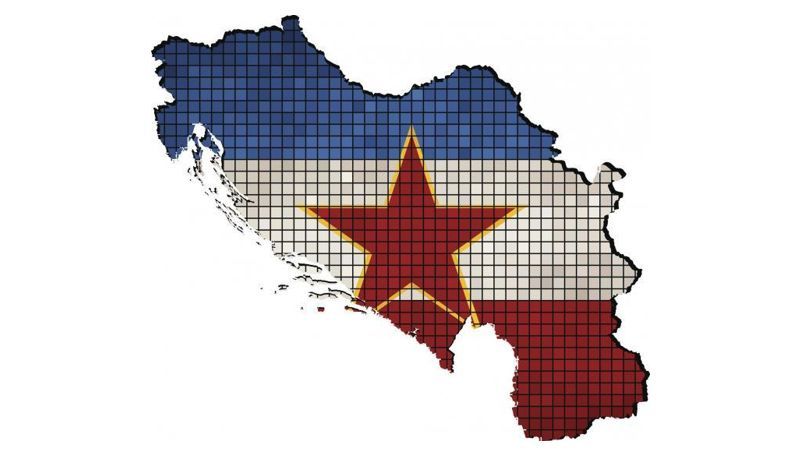
1992. Sanctions Against Yugoslavia. Recognizing New Republics
In 1992, Russia recognized the independence of Slovenia (February 14), Croatia (February 17), Bosnia and Herzegovina (April 27) and Macedonia (August 4). From the very outset, the Russian Federation supported the statehood of the new republics: Russia recognized the independence of Croatia and Slovenia seven weeks before the United States did (April 7, 1992).
In July 1992, Russia joined the implementation of Resolution No. 757 of the UN Security Council and froze political, economic, academic, and cultural relations with the Socialist Federal Republic of Yugoslavia. Joining the economic sanctions that came as a result of the course towards rapprochement with the West was one of the most controversial decisions in the foreign policy of the new Russia.
In July 1992, Russia joined the implementation of Resolution No. 757 of the UN Security Council and froze political, economic, academic, and cultural relations with the Socialist Federal Republic of Yugoslavia. Joining the economic sanctions that came as a result of the course towards rapprochement with the West was one of the most controversial decisions in the foreign policy of the new Russia.
2
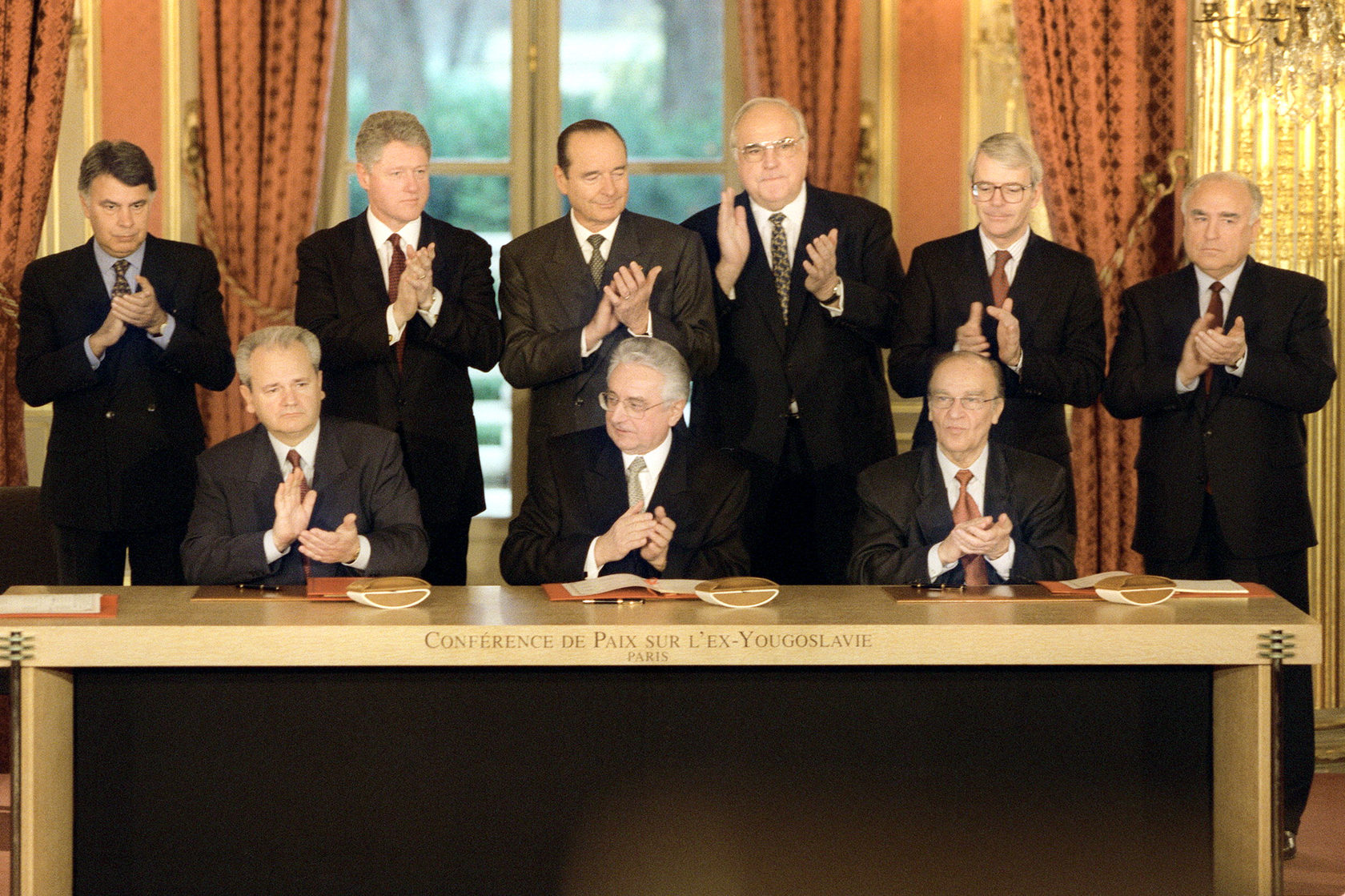
1995. Participation in the Dayton and Paris Peace Accords
Although the United States played the leading role in developing the Contact Group plan and implementing the peace agreement, five countries acted as the guarantor states for the agreement: the United States, Russia, Germany, the United Kingdom and France. Consequently, Russia has been supporting the stability and territorial integrity of Bosnia and Herzegovina for 20 years.
Video
Video
3
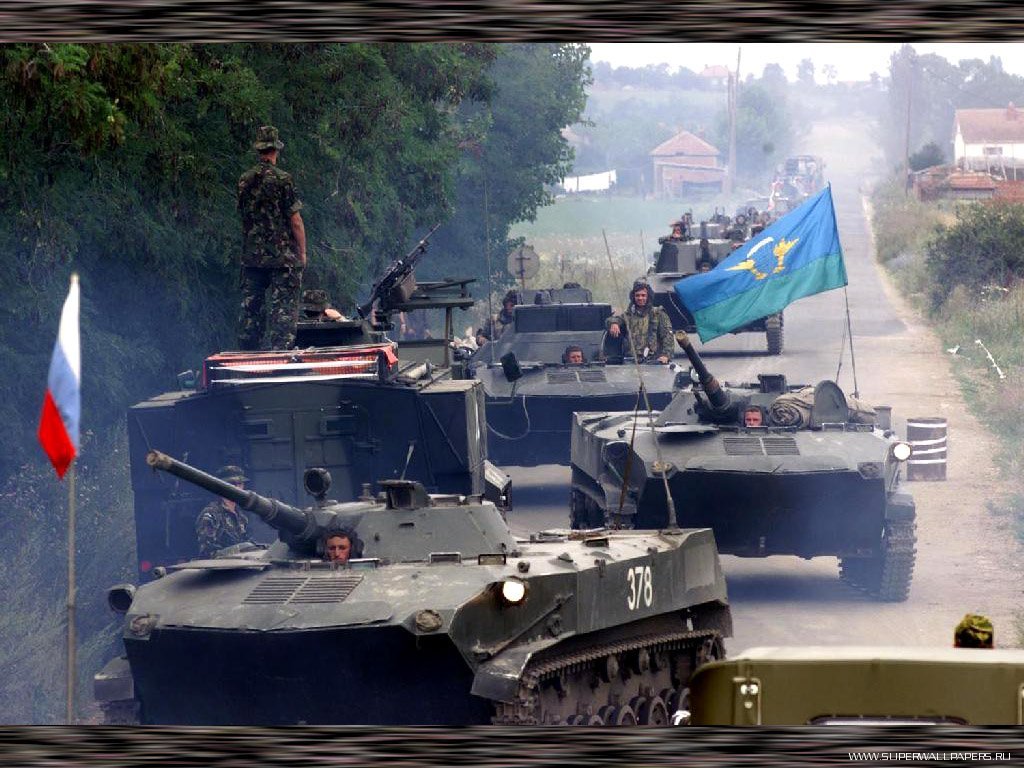
1999. The U-Turn Above the Atlantic
The crisis around the Socialist Federal Republic of Yugoslavia and NATO's bombings (March 24–June 10, 1999) demonstrated Russia's disagreement with the unilateral vision of international and intra-state developments.
Video
Russian paratroopers to Pristina was a symbolic response to the development of the crisis (June 11–12, 1999).
Video
Video
Russian paratroopers to Pristina was a symbolic response to the development of the crisis (June 11–12, 1999).
Video
Following the NATO bombing of Yugoslavia and the arrival of the new presidential administration in Russia the early 21st century, Moscow declared the inadmissibility of intervention in the domestic affairs of states as its doctrinal basis. In its relations with the West, Moscow set a course for building equal partnerships involving compromise and dialogue on key issues.
Stage II. Attempt at a New Rapprochement with the West
During the first half of the 2000s, Russia's foreign policy was characterized by the perception of the European Union as a successful integration union, combined with a lack of interest in implementing its own integration project. Ultimately, Russia welcomed the Balkan countries setting a course for accession to the European Union, while not paying attention to the fact that the process of joining ran parallel with the process of acceding to NATO. Having removed itself from participation in the handling of regional security issues (with the exception of its work on Kosovo in the UN Security Council and the work on Bosnia and Herzegovina in the Contact Group), Moscow banked on developing pragmatic, primarily economic relations with the region.
1
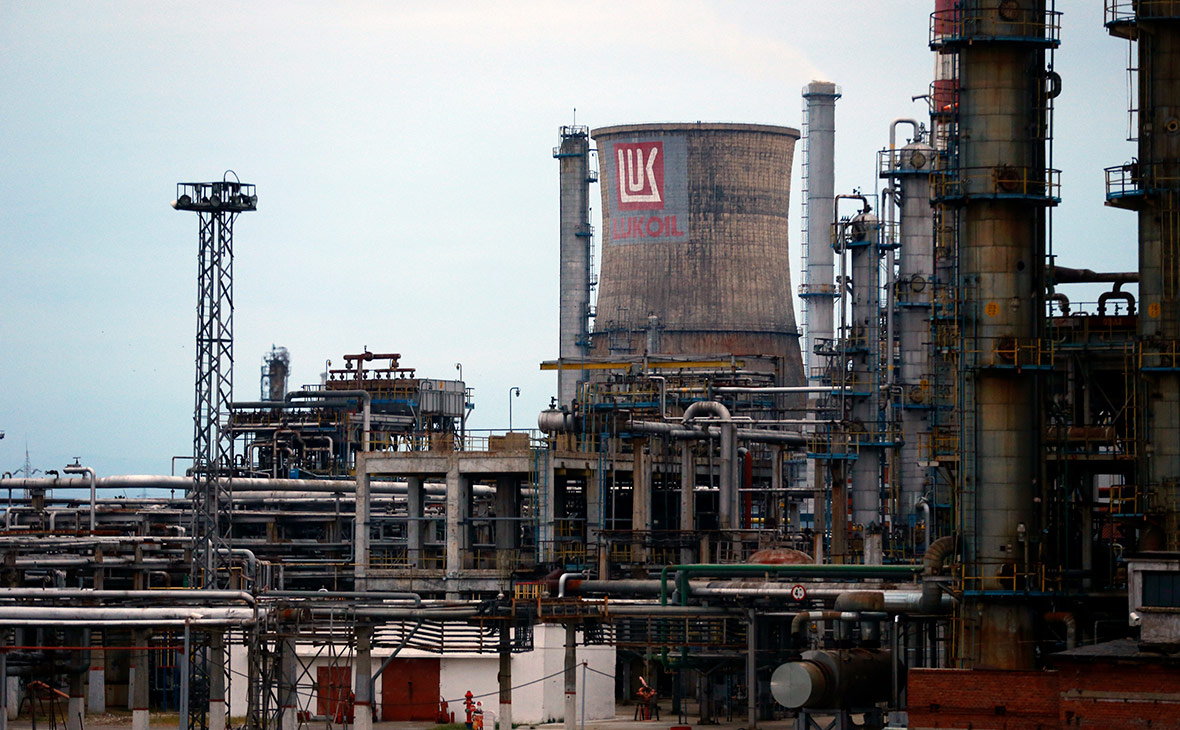
1998–2007. LUKOIL Comes to the Balkans
On January 15, 1998, LUKOIL acquired a controlling stake in the Petrotel Oil Refinery in Ploiești. On October 12, 1999, LUKOIL acquired a controlling stake in Neftohim and the Burgas Oil Refinery, investing a total of about $3 billion into the Bulgarian economy. In 2003, LUKOIL paid 117 million euros for 79.5 per cent of the shares in the Beopetrol oil product distributor and its network of gas stations. In 2005–2007, LUKOIL entered Macedonia, Montenegro and Serbia, and in 2011, it started geological exploration in Romania. As of today, the company has a network of 13 subsidiaries, two oil refineries and 350 gas stations in the Balkans.
2

2004–2006. Russian Private Investment Boom Starts in Serbia and Montenegro
Russian investors are attracted by the warm climate, the low real estate prices, the closely related language and culture of the Slavic countries and geographical proximity to the European Union. In 2006, a bookmaking company owned by the Russian millionaire Sergei Samsonenko entered the Macedonian market. In 2017, RK Vardar handball club (purchased by Samsonenko in 2012) won the European Handball Federation Champions League.
"As a rule, these are intellectuals, professors, doctors of science, medical doctors, economists, artists and journalists. They are mostly family people, most often a husband with a wife and kids… The Russians who came here to live adapted to the new environment; they like the food, the hospitality, the affability at every turn. They feel at home here…"
Dragana Radojičić, Director, Institute of Ethnography, Serbian Academy of Sciences and Arts [10].
"As a rule, these are intellectuals, professors, doctors of science, medical doctors, economists, artists and journalists. They are mostly family people, most often a husband with a wife and kids… The Russians who came here to live adapted to the new environment; they like the food, the hospitality, the affability at every turn. They feel at home here…"
Dragana Radojičić, Director, Institute of Ethnography, Serbian Academy of Sciences and Arts [10].
3
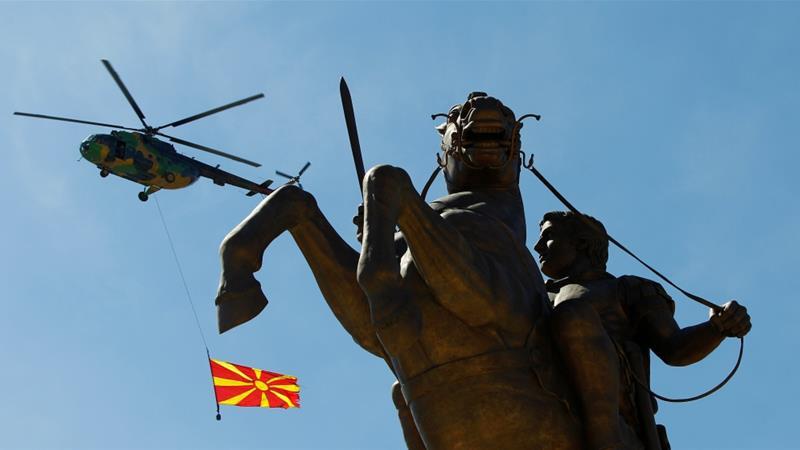
2006. Russia Recognizes Montenegro's Independence
(June 11, 2006)
(June 11, 2006)
"Montenegro is a telling example. But this is not all, there is also the Kosovo problem. Together, we need to understand and to decide for ourselves what to prioritize in resolving such problems. Whether we prioritize protecting the territorial integrity of states as they exist today, or whether we prioritize the hard-to-define concepts of historical justice and political expedience.
"I believe we should all develop uniform rules, norms and approaches to events of the same order in different regions, and we are capable of doing so. Otherwise, we will descend into chaos. When we hear that in one region or in one part of Europe – one that is, by Russian standards, quite close, just around the corner – one approach is possible, while it is absolutely inadmissible in another region, and it is difficult for us to understand why this is so. Not to mention explaining it to our people.
"This is why when some believe that it is possible to strive for independence for certain territories that have difficult relationships within the states of which they are today a part and if precedents arise, they will be just that, precedents, and they will have a negative impact, and not only on the post-Soviet space. These precedents will have a highly negative impact on the situation in the so-called prosperous EU countries. It will be hard to explain to people in South Ossetia and Abkhazia why Albanians in Kosovo may cede from the country of which they are formally a part now, while South Ossetians and Abkhazians cannot. And what is going to happen in Spain or in France? Or in Italy, where there is much separatist talk?"
(Meeting of President Vladimir Putin with the heads of the leading information agencies of G8 countries. Moscow Region, Novo-Ogaryovo, June 2, 2006)
"I believe we should all develop uniform rules, norms and approaches to events of the same order in different regions, and we are capable of doing so. Otherwise, we will descend into chaos. When we hear that in one region or in one part of Europe – one that is, by Russian standards, quite close, just around the corner – one approach is possible, while it is absolutely inadmissible in another region, and it is difficult for us to understand why this is so. Not to mention explaining it to our people.
"This is why when some believe that it is possible to strive for independence for certain territories that have difficult relationships within the states of which they are today a part and if precedents arise, they will be just that, precedents, and they will have a negative impact, and not only on the post-Soviet space. These precedents will have a highly negative impact on the situation in the so-called prosperous EU countries. It will be hard to explain to people in South Ossetia and Abkhazia why Albanians in Kosovo may cede from the country of which they are formally a part now, while South Ossetians and Abkhazians cannot. And what is going to happen in Spain or in France? Or in Italy, where there is much separatist talk?"
(Meeting of President Vladimir Putin with the heads of the leading information agencies of G8 countries. Moscow Region, Novo-Ogaryovo, June 2, 2006)
4
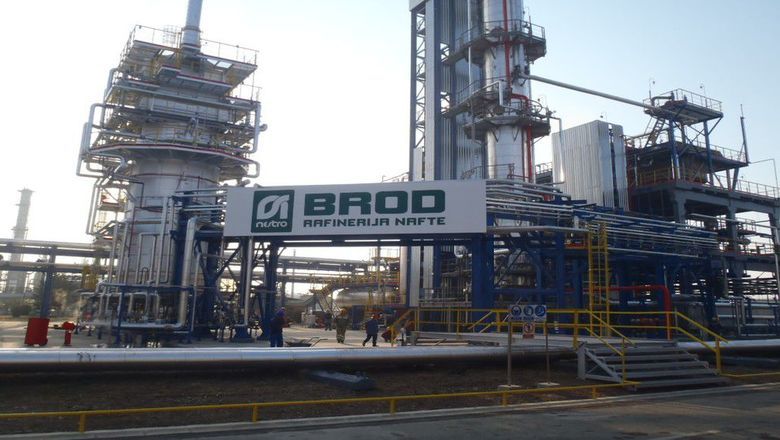
2007. Zarubezhneft Comes to Bosnia and Herzegovina
In February 2007, Neftegazinkor (a subsidiary of Zarubezhneft) acquired an oil refinery in Brod, a motor oil plant in Modriča and a network of 79 gas stations. The deal was worth a total of 121 million euros, and agreements were signed with the Government of Republika Srpska. Together with the assets, Zarubezhneft gained the right to explore oil deposits in Republika Srpska. The plant was recommissioned in 2008 following reconstruction and modernization. In 2011, the second production line was put into operation and the processing capacity increased from 1.2 million tonnes to 3 million tonnes per year. Over 250 million euros were invested into the reconstruction of the oil refinery in Brod in 2007–2014.
Video
Video
5
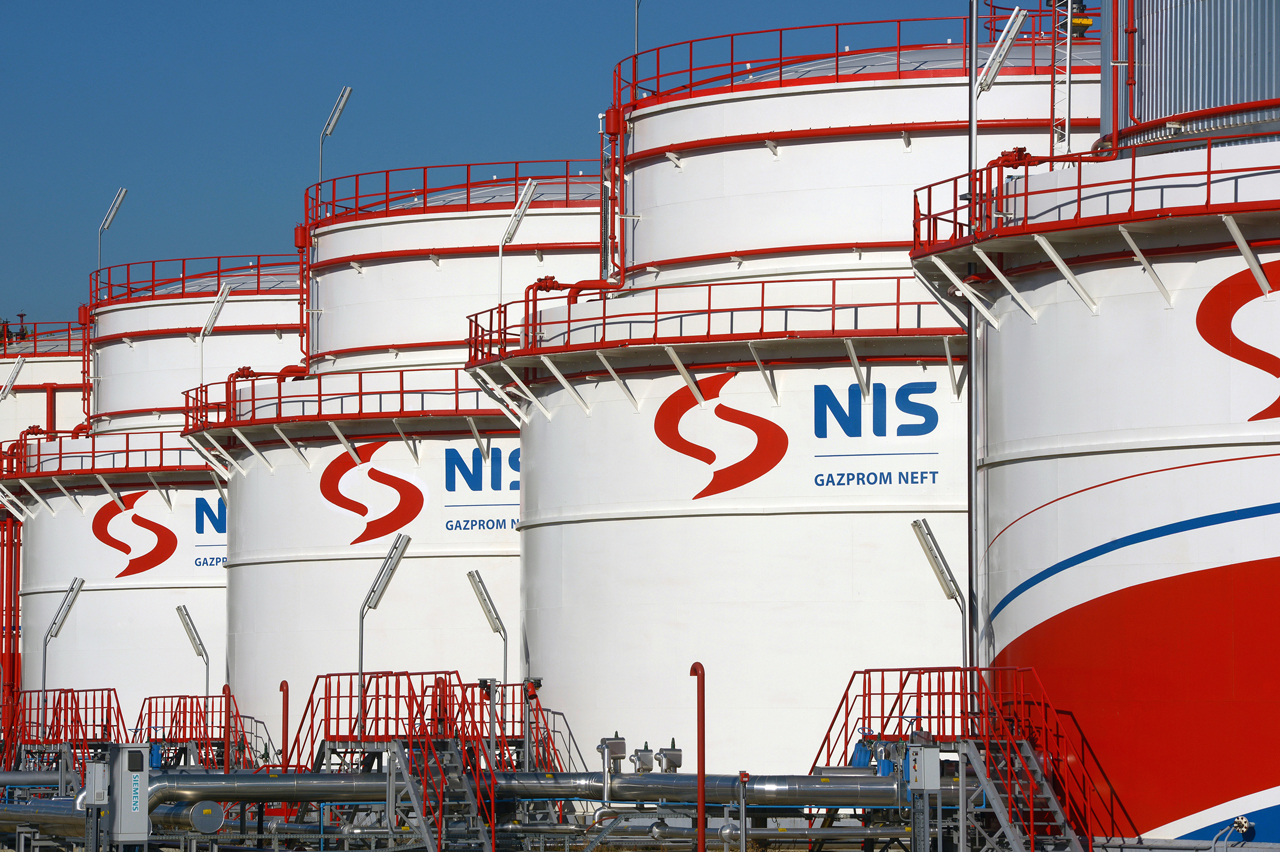
2008. Gazprom Acquires NIS, Russia Supports Serbia on Kosovo
On December 24, 2008, the Government of Serbia and Gazprom signed an agreement for the Russian state-owned company to acquired 51 per cent of the shares in Naftna Industrija Srbije for 400 million euros. Documents were signed on building the South Stream gas pipeline and the Banatski Dvor gas depot. As of 2018, Gazprom owns 56.15 per cent of NIS stock.
On February 17, 2008, Kosovo declared independence by an act of parliament. On February 18, the State Duma of the Russian Federation and the Federation Council made a joint statement noting that a "violation of the norms of international law" had transpired and that "essentially, all UN principles had been cast aside entirely." Subsequently, Russia has consistently supported the territorial integrity of Serbia, although it did note the importance of the so-called "Kosovo precedent" for self-proclaimed states.
"Now, when the situation in Kosovo has become an international precedent, Russia, in its consideration of existing territorial disputes, has to take the Kosovo scenario into account and take practical steps that certain states took concerning the status of Kosovo.
"The Council of the Chamber of the Federation Council and the Council of the State Duma of the Federal Assembly of the Russian Federation believe that recognizing the independent status of Kosovo will create all the necessary prerequisites for constructing a new format of the relations between the Russian Federation and self-proclaimed states within Russia's zone of natural interests, primarily within the post-Soviet space."
Statement of the Council of the Chamber of the Federation Council and the Council of the State Duma on the consequences of the self-proclaimed independence of Kosovo (Serbia). February 18, 2018.
On February 17, 2008, Kosovo declared independence by an act of parliament. On February 18, the State Duma of the Russian Federation and the Federation Council made a joint statement noting that a "violation of the norms of international law" had transpired and that "essentially, all UN principles had been cast aside entirely." Subsequently, Russia has consistently supported the territorial integrity of Serbia, although it did note the importance of the so-called "Kosovo precedent" for self-proclaimed states.
"Now, when the situation in Kosovo has become an international precedent, Russia, in its consideration of existing territorial disputes, has to take the Kosovo scenario into account and take practical steps that certain states took concerning the status of Kosovo.
"The Council of the Chamber of the Federation Council and the Council of the State Duma of the Federal Assembly of the Russian Federation believe that recognizing the independent status of Kosovo will create all the necessary prerequisites for constructing a new format of the relations between the Russian Federation and self-proclaimed states within Russia's zone of natural interests, primarily within the post-Soviet space."
Statement of the Council of the Chamber of the Federation Council and the Council of the State Duma on the consequences of the self-proclaimed independence of Kosovo (Serbia). February 18, 2018.
6
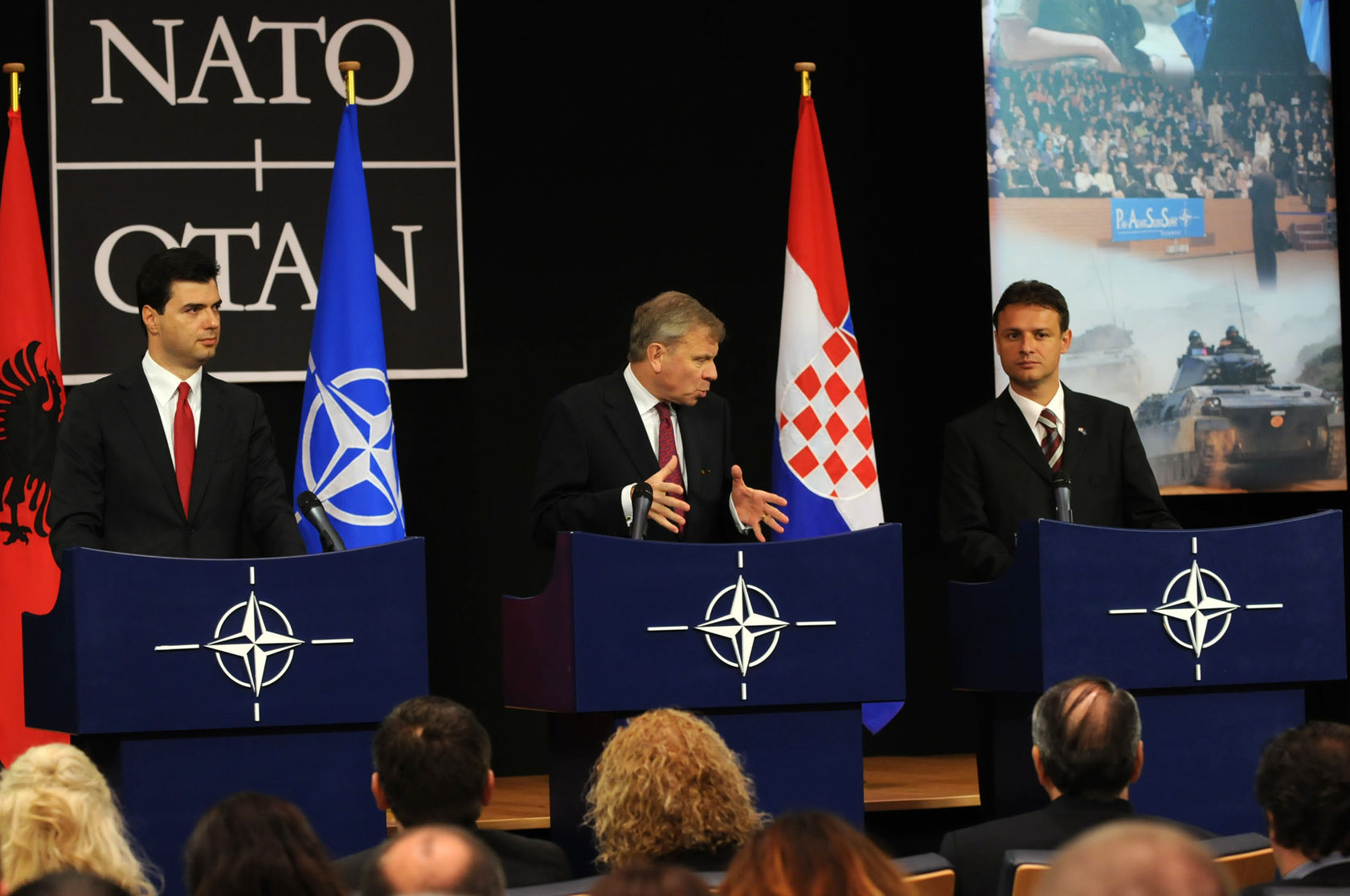
2009. Croatia and Albania Accede to NATO
The decision to admit Croatia and Albania to NATO as its 27th and 28th members was adopted at the 2008 Bucharest Summit. The membership of the third applicant, Macedonia, was vetoed by Greece, although Macedonia did comply with the nine programmes of the Membership Action Plan.
"During consultations on the 'package solution,' representatives of NATO countries stated that they will require between 18 months and two years to ratify the adaptation agreement for the Treaty on Conventional Armed Forces in Europe. At the same time, we witnessed Croatia and Albania's protocols of accession being ratified within less than nine months. I think this fact testifies to the real priorities of our NATO partners far more vividly than their verbose political statements."
(An excerpt from the briefing of A.A. Nesterenko, spokesperson for the Ministry of Foreign Affairs of the Russian Federation, April 9, 2009)
"During consultations on the 'package solution,' representatives of NATO countries stated that they will require between 18 months and two years to ratify the adaptation agreement for the Treaty on Conventional Armed Forces in Europe. At the same time, we witnessed Croatia and Albania's protocols of accession being ratified within less than nine months. I think this fact testifies to the real priorities of our NATO partners far more vividly than their verbose political statements."
(An excerpt from the briefing of A.A. Nesterenko, spokesperson for the Ministry of Foreign Affairs of the Russian Federation, April 9, 2009)
7
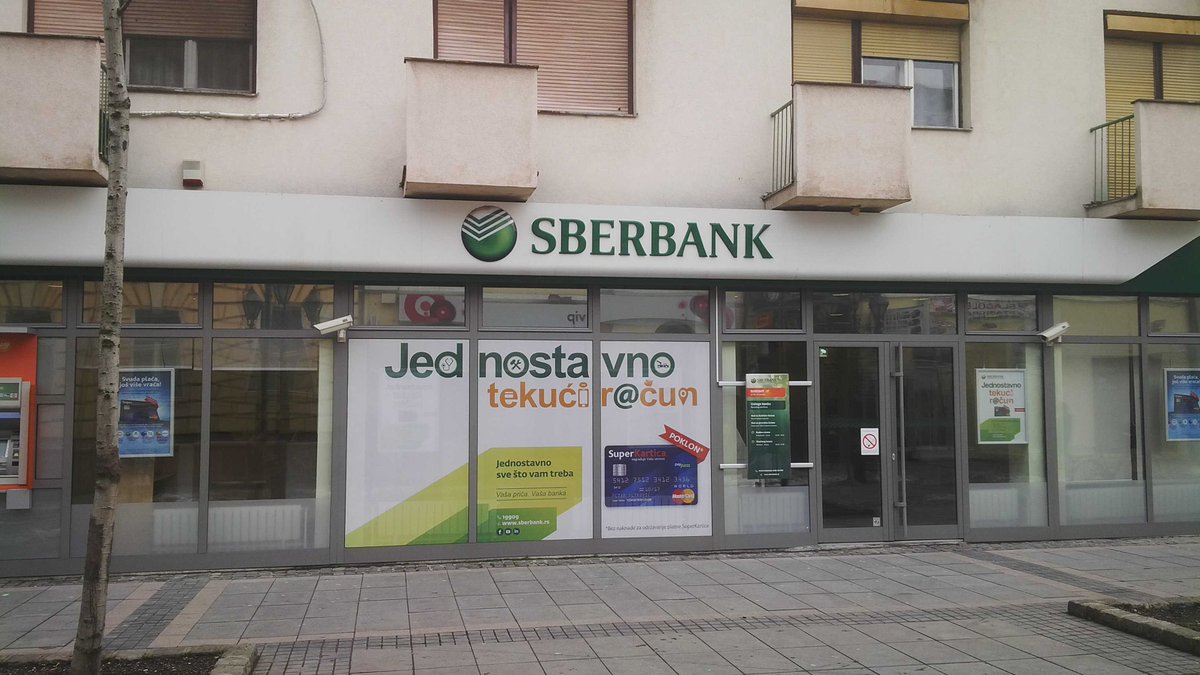
2012. Sberbank Comes to the Balkans, Ivan Savvidi Buys PAOK
With the purchase of Volksbank International financial group, Russia's Sberbank gained a presence in seven Central and Eastern Europe states (the Czech Republic, Hungary, Slovenia, Croatia, Bosnia and Herzegovina) on February 15, 2012. Its presence in these countries is through its subsidiary Sberbank AG (Vienna).
In 2012, the company Dimera, owned by businessman Ivan Savvidi, purchased 51 per cent of the shares in the Greek football club PAOK (Thessaloniki), which was on the brink of bankruptcy at the time. By 2018, companies owned by Savvidi control 20 per cent of stock in the Port of Thessaloniki, own the city's largest hotel, a TV channel, and newspaper and a tobacco factory.
Video
On April 25, 2012, Minister of the Russian Federation for Civil Defence, Emergencies and Elimination of Consequences of Natural Disasters Vladimir Puchkov and Minister of Internal Affairs of the Republic of Serbia Ivica Dacic signed an agreement on establishing a humanitarian centre of the Ministry of the Russian Federation for Civil Defence, Emergencies and Elimination of Consequences of Natural Disasters in Niš. Recently, Washington and Brussels have accused the Centre of being a disguised intelligence centre and a military base.
Video
In 2012, the company Dimera, owned by businessman Ivan Savvidi, purchased 51 per cent of the shares in the Greek football club PAOK (Thessaloniki), which was on the brink of bankruptcy at the time. By 2018, companies owned by Savvidi control 20 per cent of stock in the Port of Thessaloniki, own the city's largest hotel, a TV channel, and newspaper and a tobacco factory.
Video
On April 25, 2012, Minister of the Russian Federation for Civil Defence, Emergencies and Elimination of Consequences of Natural Disasters Vladimir Puchkov and Minister of Internal Affairs of the Republic of Serbia Ivica Dacic signed an agreement on establishing a humanitarian centre of the Ministry of the Russian Federation for Civil Defence, Emergencies and Elimination of Consequences of Natural Disasters in Niš. Recently, Washington and Brussels have accused the Centre of being a disguised intelligence centre and a military base.
Video
8
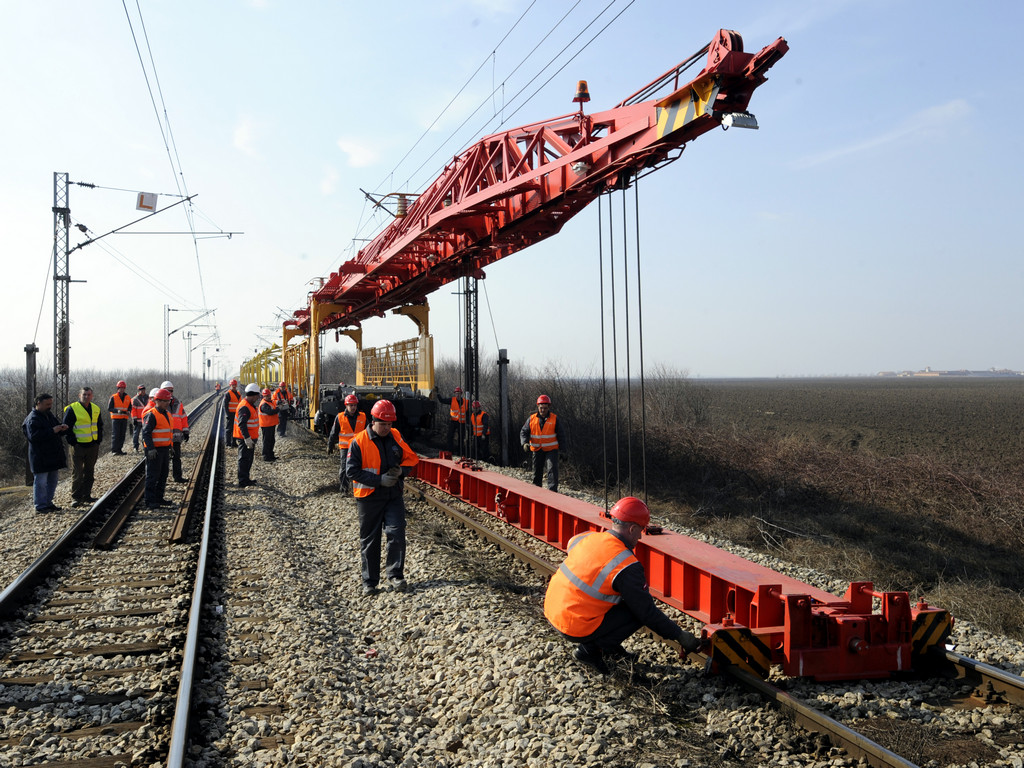
2013. Russia–Serbia Strategic Partnership. New Expansion of the EU
On January 11, 2013, Russia gave Serbia a loan of $800 million to modernize the country's railway infrastructure. On May 23, 2013, Serbia and Russian Railways signed an agreement on the modernization of Serbia's railways. The agreement involves the modernization of six stretches of railway totalling 111 kilometres and the purchase of Russian diesel trains.
Video
On May 24, 2013, the Declaration on Strategic Partnership between the Russian Federation and the Republic of Serbia is signed.
After Croatia joined the European Union on July 1, 2013, the visa-free regime between Russia and Croatia ceased to be in effect, which resulted in decreased goods turnover and smaller number of Russian tourists in Croatia.
Video
On May 24, 2013, the Declaration on Strategic Partnership between the Russian Federation and the Republic of Serbia is signed.
After Croatia joined the European Union on July 1, 2013, the visa-free regime between Russia and Croatia ceased to be in effect, which resulted in decreased goods turnover and smaller number of Russian tourists in Croatia.
By the early 2010s, Moscow had participated in the acquisition of certain key assets, and major economic and infrastructure projects had been launched. The South Stream project was the connecting element of Russia's economic presence. At the same time, economic presence was not converted into political influence, which shows that Russian investment was mostly market-oriented and non-systemic. The expansion of the European Union and exacerbated confrontation between Russia and the West resulted in declining economic cooperation and frozen diplomatic relations.
Stage III. A "Virtual Confrontation" Between Russia and the West in the Balkans?
The anti-Russian campaign in the Balkans was launched when the South Stream project was crippled back in the summer of 2013. Since February 2014, Brussels has been inclined to view the Balkans as a foothold for potential aggression on the part of Russia, an area of mediated confrontation, an objective geographic buffer that protects Europe against the "Russian threat." The aggressive nature of Brussels' policies has led to a change in the working conditions of Russian companies operating in the Balkans and growing reputational and political threats to Russian projects in Bulgaria, Serbia, Bosnia and Herzegovina, Montenegro and Macedonia.
1
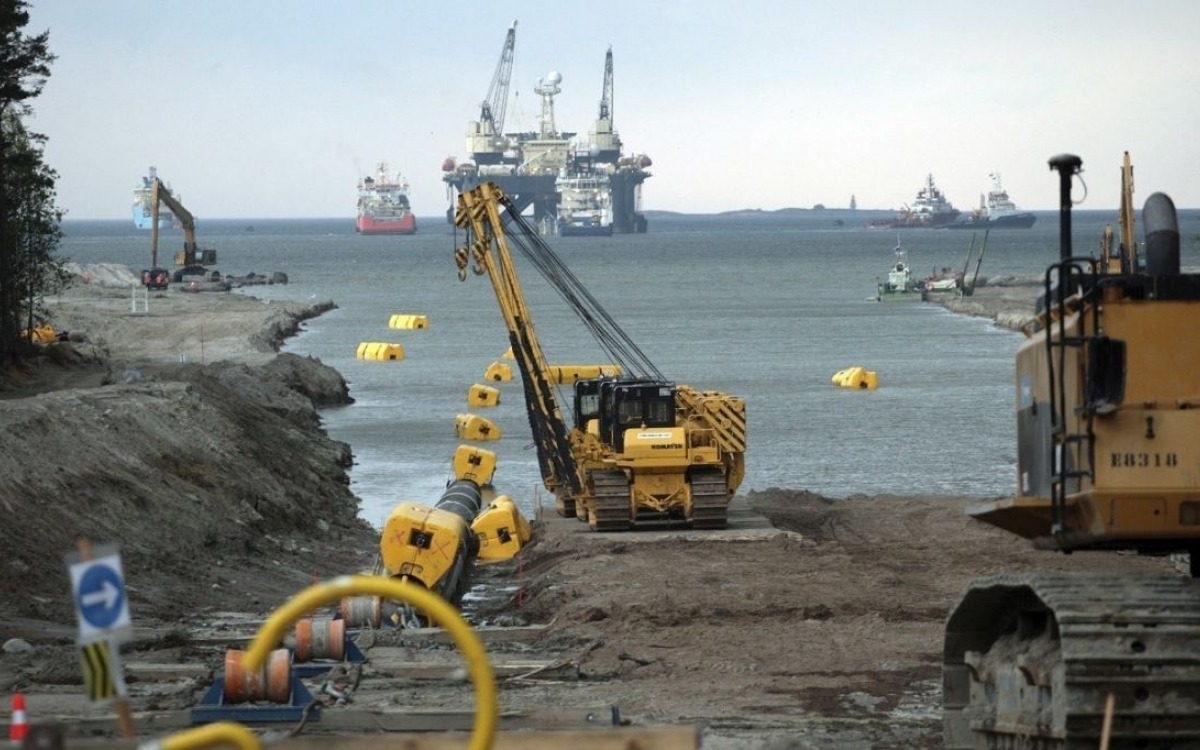
2014. From Trade Successes to a Political Crisis
By early 2014, Russia's local trade turnover had peaked with Serbia ($2.12 billion), Croatia ($1.95 billion) and Slovenia ($1.7 billion). Trade with Bulgaria peaked a year before ($2.92 billion). In April 2014, Sberbank issued a first loan transfer of 600 million euros to the Croatian retailer Agrokor to purchase 53 per cent of the shares in Slovenia's Mercator.
March 2014. Following the events in Ukraine, the first sanctions are imposed on Russia. Albania, Bulgaria, Croatia, Greece, Montenegro, Romania and Slovenia impose the sanctions. Bosnia and Herzegovina, Macedonia and Serbia refuse to do so.
On May 6, 2014, future President of Croatia and then Assistant Secretary General of NATO Kolinda Grabar-Kitarović supports Ukraine in Facebook following the "Russian aggression."
July 2014. The U.S. construction company Bechtel wins the tender to build the R7 motorway in Kosovo. Bechtel's partner in the project is Turkey's Enka. The R7 motorway (102 kilometres) is Kosovo's key roadway linking Pristina with the Albanian capital of Tirana and the key port of Durrёs. Reconstruction of the Albanian section of this major motorway (the A7 motorway, which is 171 kilometres long) was concluded in 2010.
In October 2014, Berlin accused Moscow of undermining the European Union's efforts in the Balkans. In August of that year, the heads of state and government of the Balkan countries held a summit in Berlin that launched the European Union's so-called Berlin Process.
Video
On December 1, 2014, at a press conference in Ankara, President Vladimir Putin announced that Russia had abandoned the construction of the South Stream due to the European Union's unconstructive stance on the issue and Bulgaria failing to issue the construction permit.
"If Europe does not want to implement it, then it will not be implemented."
(An excerpt from the joint news conference of Vladimir Putin and Recep Tayyip Erdogan in Ankara, December 1, 2014).
March 2014. Following the events in Ukraine, the first sanctions are imposed on Russia. Albania, Bulgaria, Croatia, Greece, Montenegro, Romania and Slovenia impose the sanctions. Bosnia and Herzegovina, Macedonia and Serbia refuse to do so.
On May 6, 2014, future President of Croatia and then Assistant Secretary General of NATO Kolinda Grabar-Kitarović supports Ukraine in Facebook following the "Russian aggression."
July 2014. The U.S. construction company Bechtel wins the tender to build the R7 motorway in Kosovo. Bechtel's partner in the project is Turkey's Enka. The R7 motorway (102 kilometres) is Kosovo's key roadway linking Pristina with the Albanian capital of Tirana and the key port of Durrёs. Reconstruction of the Albanian section of this major motorway (the A7 motorway, which is 171 kilometres long) was concluded in 2010.
In October 2014, Berlin accused Moscow of undermining the European Union's efforts in the Balkans. In August of that year, the heads of state and government of the Balkan countries held a summit in Berlin that launched the European Union's so-called Berlin Process.
Video
On December 1, 2014, at a press conference in Ankara, President Vladimir Putin announced that Russia had abandoned the construction of the South Stream due to the European Union's unconstructive stance on the issue and Bulgaria failing to issue the construction permit.
"If Europe does not want to implement it, then it will not be implemented."
(An excerpt from the joint news conference of Vladimir Putin and Recep Tayyip Erdogan in Ankara, December 1, 2014).
2
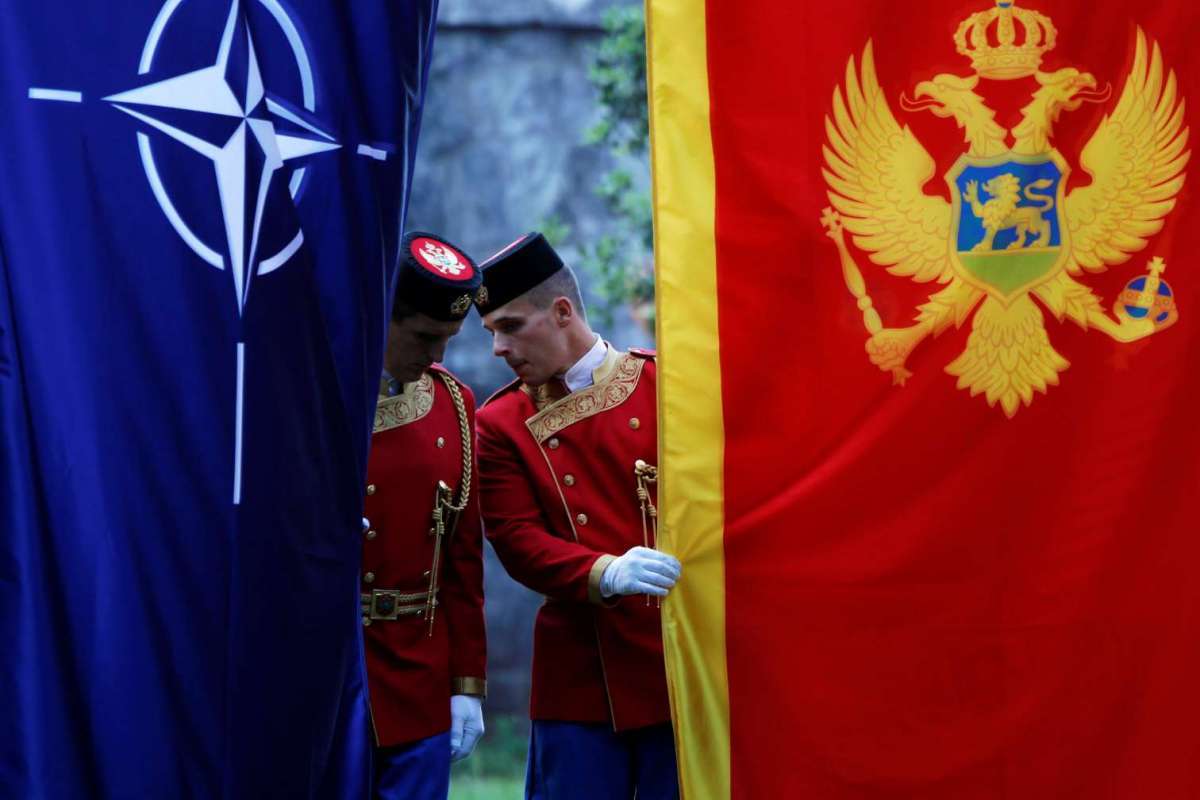
2015. Turkish Stream, Political Crisis in Macedonia, Crisis in Montenegro
On January 15, 2015, Serbia ratified the Individual Partnership Action Plan (IPAP) with NATO.
"Serbia needs NATO as an ally and as a protector of our people in Kosovo and Metohija. Who else will do that? Maybe those hypocrites? We protect the people in Kosovo with our wise and professional politics. The Serbian ship is sailing quiet seas, and we will not bring it into a storm."
Prime Minister of Serbia Aleksandar Vučić on the NSPO Agreement and the protests of the Serbian opposition. February 16, 2016.
On February 7, 2015, nine weeks after the South Stream project had been stopped, work started on the development of an alternative gas route dubbed the Turkish Stream. The route was approved and the project's technical characteristics were agreed upon by February 7, following talks between Gazprom head Alexey Miller and Minister of Energy and Natural Resources of Turkey Taner Yildiz.
On April 7, 2015 the ministers of foreign affairs of Greece, Serbia, Macedonia, Hungary and Turkey signed a declaration in Budapest on energy cooperation, with the aim of creating an "economically feasible way to diversify routes and sources," thus confirming their participation in the new gas pipeline.
A political crisis, dubbed "The Colourful Revolution" (Sharena revolutsiia), broke out in Macedonia in May 2015. The Internal Macedonian Revolutionary Organization (VMRO), which had been in power since 2008, was accused of corruption and suppressing political freedoms. The scale of the crisis forced Prime Minister Nikola Gruevski and the leader of the opposition Zoran Zaev to open talks in Strasbourg, with European Parliament MPs acting as intermediaries.
Video
"The current events in Macedonia are being orchestrated rather unsubtly by external parties. There are attempts to accuse Nikola Gruevski's government of incompetence and failure to fulfil his obligations to the nation, as well as great many other sins. The real motive is to put pressure on him because of his refusal to join the sanctions against Russia. We know for certain that this pressure is also a result of his support for the South Stream project at the time when he counted on it to benefit Macedonia. Now he is willing to cooperate in other energy supply projects between Russian and southern Europe, including the Turkish Stream. It is truly regrettable and disturbing that they are trying to use the Albanian issue to undermine Gruevski's government."
Sergei Lavrov, Russia's Minister of Foreign Affairs, speaking at the "Parliamentary Hour" of the Federation Council of the Russian Federation. Moscow, May 20, 2015.
In September–October 2015, the Balkans found themselves at the epicentre of the migration crisis. The flood of refugees from the Middle East and the extreme measures taken by Brussels (the "Juncker Plan") resulted in the introduction of special border control measures.
Video
In mid-October 2015, thousands of people participated in rallies in Podgorica, the capital of Montenegro. The rallies were characterized by a combination of the discontent with the many years of Milo Dukanović's rule and anti-NATO slogans. During the night of October 15 to 16, 2016, events took place that Montenegro would later describe as "an attempted coup d'état organized by Russia." Montenegrin police arrested 20 people on charges of preparing a coup d'état. Protests of the opposition were suppressed.
Video
On December 2, 2015, Montenegro was officially invited to join NATO.
Video
"Serbia needs NATO as an ally and as a protector of our people in Kosovo and Metohija. Who else will do that? Maybe those hypocrites? We protect the people in Kosovo with our wise and professional politics. The Serbian ship is sailing quiet seas, and we will not bring it into a storm."
Prime Minister of Serbia Aleksandar Vučić on the NSPO Agreement and the protests of the Serbian opposition. February 16, 2016.
On February 7, 2015, nine weeks after the South Stream project had been stopped, work started on the development of an alternative gas route dubbed the Turkish Stream. The route was approved and the project's technical characteristics were agreed upon by February 7, following talks between Gazprom head Alexey Miller and Minister of Energy and Natural Resources of Turkey Taner Yildiz.
On April 7, 2015 the ministers of foreign affairs of Greece, Serbia, Macedonia, Hungary and Turkey signed a declaration in Budapest on energy cooperation, with the aim of creating an "economically feasible way to diversify routes and sources," thus confirming their participation in the new gas pipeline.
A political crisis, dubbed "The Colourful Revolution" (Sharena revolutsiia), broke out in Macedonia in May 2015. The Internal Macedonian Revolutionary Organization (VMRO), which had been in power since 2008, was accused of corruption and suppressing political freedoms. The scale of the crisis forced Prime Minister Nikola Gruevski and the leader of the opposition Zoran Zaev to open talks in Strasbourg, with European Parliament MPs acting as intermediaries.
Video
"The current events in Macedonia are being orchestrated rather unsubtly by external parties. There are attempts to accuse Nikola Gruevski's government of incompetence and failure to fulfil his obligations to the nation, as well as great many other sins. The real motive is to put pressure on him because of his refusal to join the sanctions against Russia. We know for certain that this pressure is also a result of his support for the South Stream project at the time when he counted on it to benefit Macedonia. Now he is willing to cooperate in other energy supply projects between Russian and southern Europe, including the Turkish Stream. It is truly regrettable and disturbing that they are trying to use the Albanian issue to undermine Gruevski's government."
Sergei Lavrov, Russia's Minister of Foreign Affairs, speaking at the "Parliamentary Hour" of the Federation Council of the Russian Federation. Moscow, May 20, 2015.
In September–October 2015, the Balkans found themselves at the epicentre of the migration crisis. The flood of refugees from the Middle East and the extreme measures taken by Brussels (the "Juncker Plan") resulted in the introduction of special border control measures.
Video
In mid-October 2015, thousands of people participated in rallies in Podgorica, the capital of Montenegro. The rallies were characterized by a combination of the discontent with the many years of Milo Dukanović's rule and anti-NATO slogans. During the night of October 15 to 16, 2016, events took place that Montenegro would later describe as "an attempted coup d'état organized by Russia." Montenegrin police arrested 20 people on charges of preparing a coup d'état. Protests of the opposition were suppressed.
Video
On December 2, 2015, Montenegro was officially invited to join NATO.
Video
3
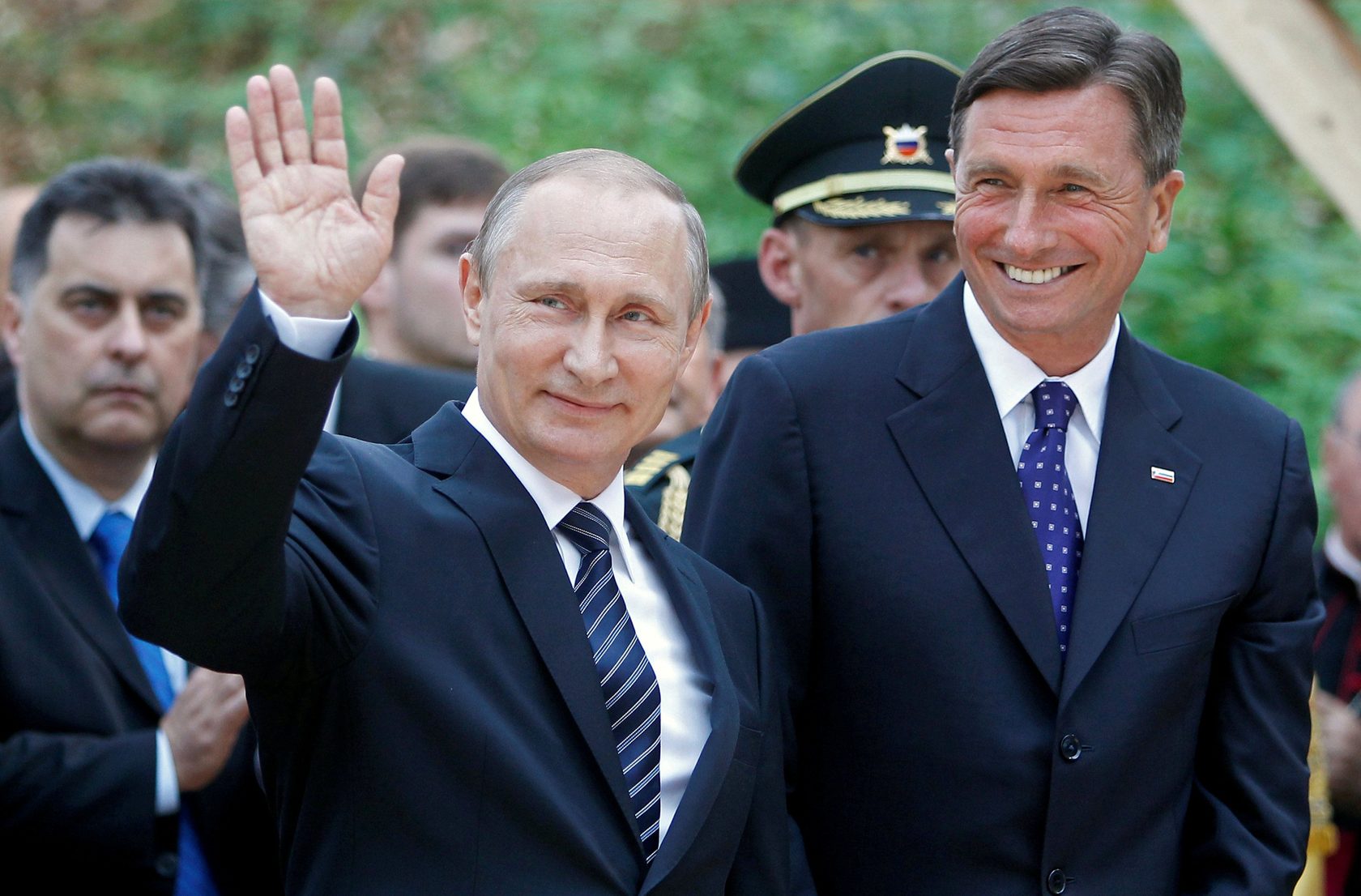
2016. The Turkish Stream is Re-Launched. The New Concept of Russia's Foreign Policy
On February 12, 2016, the Parliament of Serbia ratified the agreement with NATO on Support and Procurement Organization (NSPO) that granted NATO personnel freedom of movement in the country, access to state and private facilities, diplomatic immunity and exemption from taxes and dues.
"For the first time in history, the Republic of Serbia has gained the rights that the Alliance granted to its members many years ago. Now, when we (our army – translator's note) head – through the territory of another country – to Lebanon or somewhere else, we will not pay taxes. We will just pass through that territory, just like others will pass through our territory."
Serbia's Prime Minister Aleksandar Vučić on the NSPO agreement. February 19, 2016.
June 2016. For the first time, the officially neutral Macedonia, the "Republic of Kosovo" and Finland participated in the Anaconda-2016 military exercise.
On October 10, 2016, Moscow and Ankara concluded an inter-governmental agreement on building the Turkish Stream gas pipeline. Even though the Turkish Stream was suspended following the shooting down of an Su-24 fighter jet, on July 26, 2016 (30 days after an attempted coup in Turkey), Deputy Prime Minister of the Russian Federation Arkady Dvorkovich said that Turkey was ready to relaunch the project. On December 2, 2016, the Turkish Parliament ratified the agreement.
On July 30, 2016, President Vladimir Putin visited Slovenia. Together with President Borut Pahor, he attended the unveiling ceremony of the monument to Russian and Soviet soldiers who had fallen in Slovenia. This was one of the Russian President's first visits to an EU state after the start of the Ukrainian crisis. Although Slovenia supported the anti-Russian sanctions, it also consistently advocates resuming a dialogue with Russia.
Video
On November 30, 2016, the new Foreign Policy Concept of the Russian Federation is adopted. The concepts of "the Balkans" and "Southeast Europe" are excluded from the document. Instead, it features the concepts of "the European Union," the "European region, and the "Euro-Atlantic region." 2016 was also marked by Chinese investors entering Greece. During that year, China's shipping company COSCO acquired a controlling stake in the Greek Port of Piraeus (51 per cent).
"For the first time in history, the Republic of Serbia has gained the rights that the Alliance granted to its members many years ago. Now, when we (our army – translator's note) head – through the territory of another country – to Lebanon or somewhere else, we will not pay taxes. We will just pass through that territory, just like others will pass through our territory."
Serbia's Prime Minister Aleksandar Vučić on the NSPO agreement. February 19, 2016.
June 2016. For the first time, the officially neutral Macedonia, the "Republic of Kosovo" and Finland participated in the Anaconda-2016 military exercise.
On October 10, 2016, Moscow and Ankara concluded an inter-governmental agreement on building the Turkish Stream gas pipeline. Even though the Turkish Stream was suspended following the shooting down of an Su-24 fighter jet, on July 26, 2016 (30 days after an attempted coup in Turkey), Deputy Prime Minister of the Russian Federation Arkady Dvorkovich said that Turkey was ready to relaunch the project. On December 2, 2016, the Turkish Parliament ratified the agreement.
On July 30, 2016, President Vladimir Putin visited Slovenia. Together with President Borut Pahor, he attended the unveiling ceremony of the monument to Russian and Soviet soldiers who had fallen in Slovenia. This was one of the Russian President's first visits to an EU state after the start of the Ukrainian crisis. Although Slovenia supported the anti-Russian sanctions, it also consistently advocates resuming a dialogue with Russia.
Video
On November 30, 2016, the new Foreign Policy Concept of the Russian Federation is adopted. The concepts of "the Balkans" and "Southeast Europe" are excluded from the document. Instead, it features the concepts of "the European Union," the "European region, and the "Euro-Atlantic region." 2016 was also marked by Chinese investors entering Greece. During that year, China's shipping company COSCO acquired a controlling stake in the Greek Port of Piraeus (51 per cent).
4
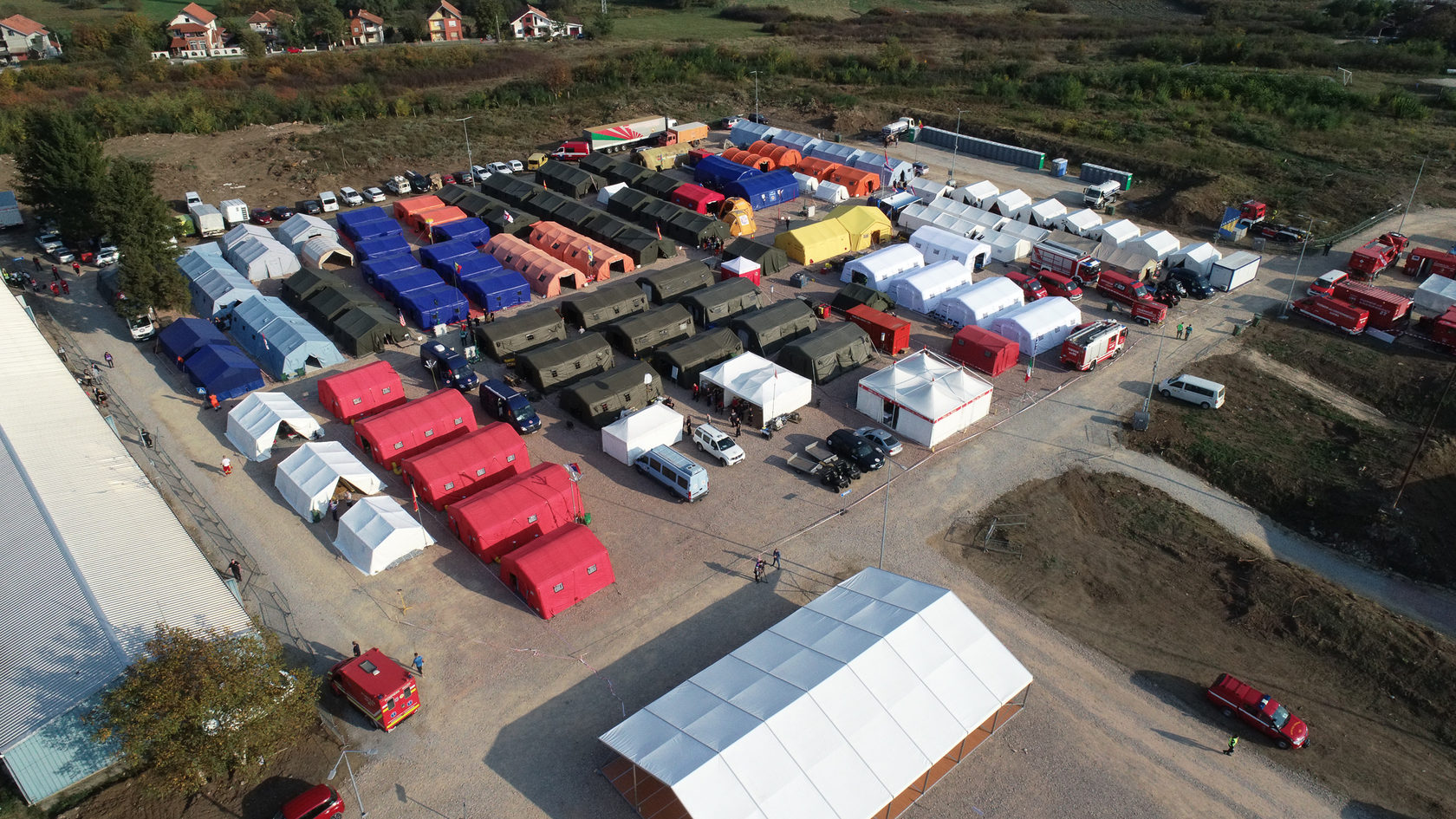
2017. Eurasian Geo-Economy and Euro-Atlantic expansion
March 2017. After 13 years, the sale of 67 per cent of the shares in the Port of Thessaloniki is finalized. The deal is worth 1.1 million euros. The South Europe Gateway Thessaloniki international consortium registered in Cyprus becomes the new majority stakeholder. Germany's Deutsche Invest Equity Partners GmbH owns 47 per cent of the consortium stock. The second partner, with 33 per cent of the shares, is Terminal Link SAS. Ivan Savvidi's Belterra Investments group owns the remaining 20 per cent of the shares.
In February–April 2017, the unsatisfactory financial situation of Agrokor finally comes to the fore. At year-end 2016, Agrokor reported losses of $1.73 billion. In April 2017, the Croatian government places the company into receivership and announced that it could not guarantee repayment of debts. Agrokor's total debt to Russia's Sberbank and VTB is estimated at 1.1 billion euros and 300 million euros respectively.
"The situation is extremely non-transparent for us, as we have repeatedly stated to the Croatian government. It is odd that the Croatian government supports this lack of transparency. Given the absence of transparency, when we do not understand how much money the company needs, when we have complaints regarding the professionalism of the management, when we do not understand how efficiently money is spent, we do not want to take part in such processes."
Head of Sberbank Herman Gref about the Agrokor crisis, September 12, 2017.
The political crisis in Macedonia reaches its peak on April 27, 2017. Protesters campaigning "For United Macedonia" burst into Parliament following the election of the ethnic Albanian Talat Xhaferi as Speaker of the Parliament and attacked the leaders of the Macedonian opposition.
Video
The European Union and the United States stepped up their intermediary efforts, which resulted in the resignation of Prime Minister Nikola Gruevski and the formation of a new cabinet headed by Zoran Zaev. Soon after, Macedonia launched the process of settling its political disputes with Bulgaria and Greece as part of its Euro-Atlantic course.
On May 7, 2017, construction starts of the maritime stretch of the Turkish Stream. The pipeline had reached the coast of Turkey by April 2018.
Video
On June 5, 2017, Montenegro becomes NATO's 29th member.
Video
On October 18–20, 2017, President of Croatia Kolinda Grabar-Kitarović visited Russia for the first time since the start of the Russia-EU crisis and spoke about the need to restore bilateral relations. In November 2017, Serbia and NATO held the Double Eagle military exercise. The drill was held at the Batajnica Air Base in Belgrade. The 2nd Battalion, 503rd Infantry Regiment of the 173rd Airborne Brigade took part in the drill on the U.S. side. A total of 200 paratroopers jumped from a C-130 transport aircraft.
Video
In February–April 2017, the unsatisfactory financial situation of Agrokor finally comes to the fore. At year-end 2016, Agrokor reported losses of $1.73 billion. In April 2017, the Croatian government places the company into receivership and announced that it could not guarantee repayment of debts. Agrokor's total debt to Russia's Sberbank and VTB is estimated at 1.1 billion euros and 300 million euros respectively.
"The situation is extremely non-transparent for us, as we have repeatedly stated to the Croatian government. It is odd that the Croatian government supports this lack of transparency. Given the absence of transparency, when we do not understand how much money the company needs, when we have complaints regarding the professionalism of the management, when we do not understand how efficiently money is spent, we do not want to take part in such processes."
Head of Sberbank Herman Gref about the Agrokor crisis, September 12, 2017.
The political crisis in Macedonia reaches its peak on April 27, 2017. Protesters campaigning "For United Macedonia" burst into Parliament following the election of the ethnic Albanian Talat Xhaferi as Speaker of the Parliament and attacked the leaders of the Macedonian opposition.
Video
The European Union and the United States stepped up their intermediary efforts, which resulted in the resignation of Prime Minister Nikola Gruevski and the formation of a new cabinet headed by Zoran Zaev. Soon after, Macedonia launched the process of settling its political disputes with Bulgaria and Greece as part of its Euro-Atlantic course.
On May 7, 2017, construction starts of the maritime stretch of the Turkish Stream. The pipeline had reached the coast of Turkey by April 2018.
Video
On June 5, 2017, Montenegro becomes NATO's 29th member.
Video
On October 18–20, 2017, President of Croatia Kolinda Grabar-Kitarović visited Russia for the first time since the start of the Russia-EU crisis and spoke about the need to restore bilateral relations. In November 2017, Serbia and NATO held the Double Eagle military exercise. The drill was held at the Batajnica Air Base in Belgrade. The 2nd Battalion, 503rd Infantry Regiment of the 173rd Airborne Brigade took part in the drill on the U.S. side. A total of 200 paratroopers jumped from a C-130 transport aircraft.
Video
5
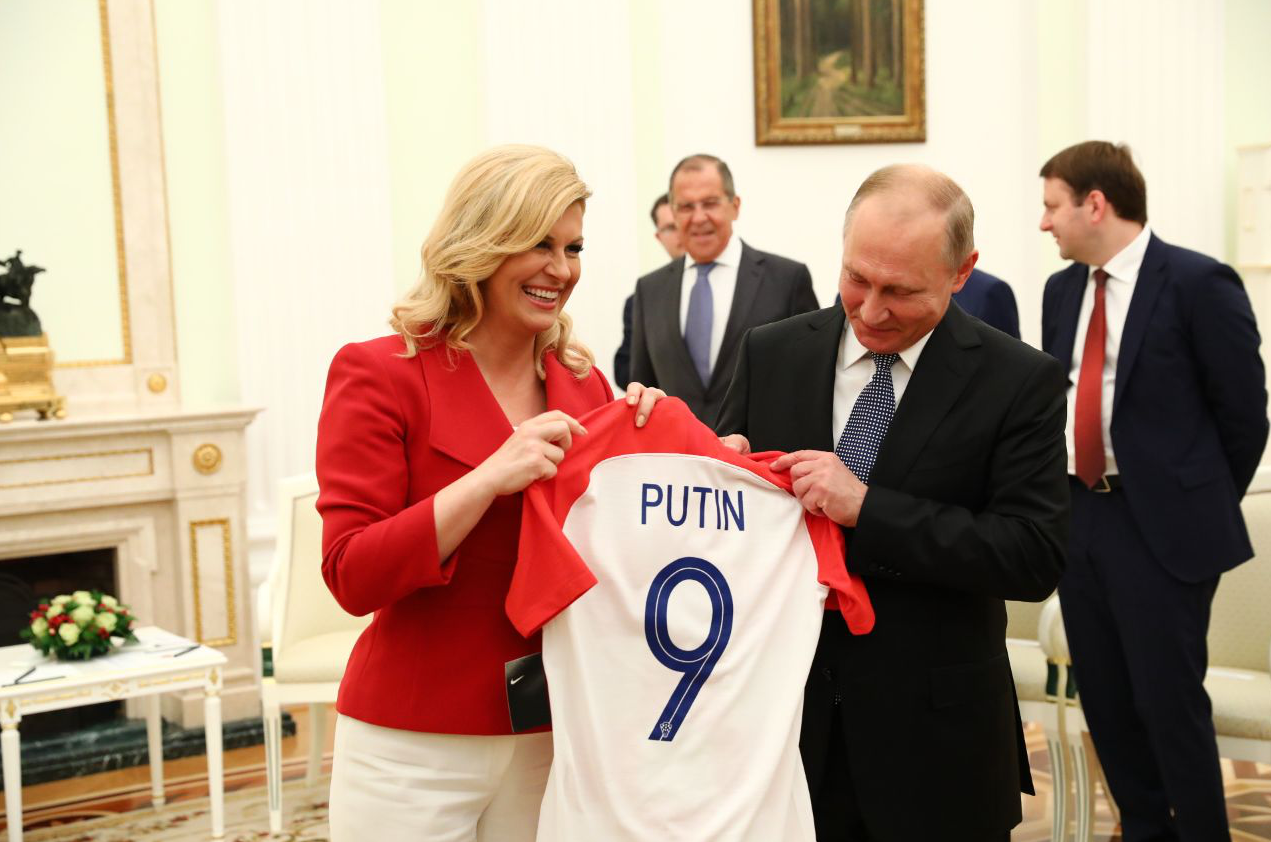
2018. Expulsion of Russian Diplomats and the "Macedonian Question." Protests in Greece and Macedonia. New Projects of the U.S., EU and Turkey
In January 2018, the construction of a new Belgrade–Sarajevo highway was announced. Turkey would be taking part in the project. The cost is estimated at 1.8–3 billion euros (as of 2018). Two sections are slated to be built: one running west from Belgrade (via Bijeljina in Bosnia and Herzegovina), the other running south-west (via Višegrad in Bosnia and Herzegovina).
In March 2018 after the "Skripal affair," Croatia, Macedonia, Montenegro and Romania each expelled one Russian diplomat. Albania expelled two diplomats. On July 11, 2018, Greece expelled two diplomats. Bulgaria, Bosnia and Herzegovina, Slovenia and Serbia did not expel any diplomats.
"Serbia is on the European path. But when Serbia says it is not going to impose sanctions against Russia, it means it will not impose sanctions. When it says it is not going to accede to NATO and will remain a neutral country, it means that is the way it is going to be, and everyone knows it."
Serbia's President Aleksandar Vučić at a meeting with Vladimir Putin. May 8, 2018.
In February 2018, mass protests against the name North Macedonia broke out in Thessaloniki and Athens. The name had been approved in the course of Macedonia–Greece talks.
Video
On June 17, Alexis Tsipras and Zoran Zaev signed an agreement on renaming the country, and protests broke out in Macedonia. The businessman Ivan Savvidi is accused of financing the protests. Although the agreement has not been yet ratified by the Macedonian parliament, Macedonia was officially invited to join NATO on July 11, 2018.
On May 30, at a meeting with President of Russia Vladimir Putin, President of Bulgaria Boyko Borisov expressed his interest in joining the Turkish Stream and apologized for the breakdown of the South Stream project.
In April–June 2018, following a lawsuit, Sberbank was reinstated on the list of Agrokor's creditors. Under the agreement achieved, the company's debt to Sberbank (reduced to 650 million euros) will be converted into the stock of the restructured company. Given the stock of minority shareholders, Sberbank's share is estimated at 4.6–4.8 per cent.
On June 15, 2018, President of Croatia Kolinda Grabar-Kitarović attended the World Cup final in Russia where Croatia's team played. During her visit, she recorded a thank-you address in Russian and presented a personalized T-shirt of Croatia's team to President of Russia Vladimir Putin.
Video
On August 4, 2018, Prime Minister of Albania Edi Rama announced the building of a NATO airbase in in Kuçovё in Central Albania. The project's cost is estimated at $50 million.
On September 19, 2018, High Representative of the European Union for Foreign Affairs and Security Policy Federica Mogherini announced the EU strategy on bolstering the ties between EU member states and Asian countries. The prospective goal is to bring trade turnover to 1.5 trillion euros a year and increase Europe and Asia's combined GDP to 60 per cent of the gross world product. The Balkans and Serbia have been given the key role in the process. According to the current sample data, these countries gain great significance from the point of view of transportation infrastructure.
On October 8–11, 2018, NATO military exercise was held in Serbia. The drill with the code name Srbija 2018 was held around Mladenovac and drilled actions in case of emergencies.
On October 10, 2018, Minister for National Defence of Greece Panos Kammenos announced Greece's interest in building three new NATO bases in the country following a meeting with the United States Secretary of Defense James Mattis at the Pentagon. Military facilities are proposed to be sited around Larissa, Volos and Alexandroupoli. Additionally, it was announced that a NATO air training centre would be established in Kalamata (southern Peloponnesus).
In March 2018 after the "Skripal affair," Croatia, Macedonia, Montenegro and Romania each expelled one Russian diplomat. Albania expelled two diplomats. On July 11, 2018, Greece expelled two diplomats. Bulgaria, Bosnia and Herzegovina, Slovenia and Serbia did not expel any diplomats.
"Serbia is on the European path. But when Serbia says it is not going to impose sanctions against Russia, it means it will not impose sanctions. When it says it is not going to accede to NATO and will remain a neutral country, it means that is the way it is going to be, and everyone knows it."
Serbia's President Aleksandar Vučić at a meeting with Vladimir Putin. May 8, 2018.
In February 2018, mass protests against the name North Macedonia broke out in Thessaloniki and Athens. The name had been approved in the course of Macedonia–Greece talks.
Video
On June 17, Alexis Tsipras and Zoran Zaev signed an agreement on renaming the country, and protests broke out in Macedonia. The businessman Ivan Savvidi is accused of financing the protests. Although the agreement has not been yet ratified by the Macedonian parliament, Macedonia was officially invited to join NATO on July 11, 2018.
On May 30, at a meeting with President of Russia Vladimir Putin, President of Bulgaria Boyko Borisov expressed his interest in joining the Turkish Stream and apologized for the breakdown of the South Stream project.
In April–June 2018, following a lawsuit, Sberbank was reinstated on the list of Agrokor's creditors. Under the agreement achieved, the company's debt to Sberbank (reduced to 650 million euros) will be converted into the stock of the restructured company. Given the stock of minority shareholders, Sberbank's share is estimated at 4.6–4.8 per cent.
On June 15, 2018, President of Croatia Kolinda Grabar-Kitarović attended the World Cup final in Russia where Croatia's team played. During her visit, she recorded a thank-you address in Russian and presented a personalized T-shirt of Croatia's team to President of Russia Vladimir Putin.
Video
On August 4, 2018, Prime Minister of Albania Edi Rama announced the building of a NATO airbase in in Kuçovё in Central Albania. The project's cost is estimated at $50 million.
On September 19, 2018, High Representative of the European Union for Foreign Affairs and Security Policy Federica Mogherini announced the EU strategy on bolstering the ties between EU member states and Asian countries. The prospective goal is to bring trade turnover to 1.5 trillion euros a year and increase Europe and Asia's combined GDP to 60 per cent of the gross world product. The Balkans and Serbia have been given the key role in the process. According to the current sample data, these countries gain great significance from the point of view of transportation infrastructure.
On October 8–11, 2018, NATO military exercise was held in Serbia. The drill with the code name Srbija 2018 was held around Mladenovac and drilled actions in case of emergencies.
On October 10, 2018, Minister for National Defence of Greece Panos Kammenos announced Greece's interest in building three new NATO bases in the country following a meeting with the United States Secretary of Defense James Mattis at the Pentagon. Military facilities are proposed to be sited around Larissa, Volos and Alexandroupoli. Additionally, it was announced that a NATO air training centre would be established in Kalamata (southern Peloponnesus).
Conclusion
One of the results of the Ukrainian crisis was the start of an information and diplomatic campaign designed to counteract "Russia's subversive influence" in Southeast Europe. One of its intermediary results was Montenegro joining NATO and the rapid preparations for Macedonia's subsequent accession.
The deployment by the West of the "Balkan Front" in its political, economic and informational confrontation with Russia is combined with Russia's foreign political priorities shifting to Southeast Asia and the Middle East. Together, these developments resulted in the decreasing role of the Balkans in Russia's diplomatic efforts.
After the South Stream project was abandoned in December 2014, Russia's economic presence in the Balkans is no longer integral. Although Russian investment in the region remains, and has even increased in some areas, the changing international context has resulted in Russia's economic presence being progressively more dependent on the stance of the United States, the United Kingdom, Turkey and China.
Progress in the talks on Nord Stream 2 and Vladimir Putin's meeting with Angela Merkel on August 20, 2018, which took place at the same time that talks with Bulgaria on the south gas route were resumed, indicate that the countries on northeast and southeast peripheries of the European Union are increasingly dependent on the stance of EU leaders.
At the same time, the United States is stepping up its diplomatic efforts. Building a military base in Albania, deploying elements of the missile defence system in Romania and possibly building new U.S. air bases in Greece demonstrate the increased military significance of the region. It is possible that, in the longer term, it could become the site of the principal military infrastructure of NATO's southern flank.
The deployment by the West of the "Balkan Front" in its political, economic and informational confrontation with Russia is combined with Russia's foreign political priorities shifting to Southeast Asia and the Middle East. Together, these developments resulted in the decreasing role of the Balkans in Russia's diplomatic efforts.
After the South Stream project was abandoned in December 2014, Russia's economic presence in the Balkans is no longer integral. Although Russian investment in the region remains, and has even increased in some areas, the changing international context has resulted in Russia's economic presence being progressively more dependent on the stance of the United States, the United Kingdom, Turkey and China.
Progress in the talks on Nord Stream 2 and Vladimir Putin's meeting with Angela Merkel on August 20, 2018, which took place at the same time that talks with Bulgaria on the south gas route were resumed, indicate that the countries on northeast and southeast peripheries of the European Union are increasingly dependent on the stance of EU leaders.
At the same time, the United States is stepping up its diplomatic efforts. Building a military base in Albania, deploying elements of the missile defence system in Romania and possibly building new U.S. air bases in Greece demonstrate the increased military significance of the region. It is possible that, in the longer term, it could become the site of the principal military infrastructure of NATO's southern flank.
Russia in the Balkans
Russia's New Strategy
Part I. Factors Influencing Russia's Foreign Policy in the Balkans
In essence, Russia's foreign policy in the Balkans in based on the principle of using the minimum required resources to maintain a working atmosphere at the inter-country level and prevent the loss of existing tangible assets.
Positive factors
1
The European Union's objective difficulties in the Balkans:
settling territorial and political disputes; modernizing the political systems in the region's countries; and creating conditions for economic development, social stability and prosperity.
2
The Orthodox people of the Balkans being traditionally sympathetic to Russia,
an attitude that persists, despite political circumstances [11].
3
Russia's foreign political successes
The steps taken at the initial stages of the Ukrainian crisis, the military operation in Syria, the creation of the Eurasian Economic Union and special mechanisms for interaction with Turkey, Iran, China and the BRICS countries create the image of Russia in the Balkans as a "great power" and as a "global alternative" that defends the principles of multi-polarity in international relations. Another aspect of the issue is exaggerating the role of today's Russia in the Balkans by both its supporters and detractors. Although the facts of such situations as the "coup d'état in Montenegro" or "Russia's attempts to prevent Macedonia from acceding to NATO" need to be ascertained, paradoxically, these developments affect some political forces in the region using Russia-related symbols and motifs of "friendship with Russia" in their political campaigns. As a consequence, Russia has gained a certain image-building presence without exerting any significant efforts.
Video
Video
4
The successful World Cup, the World Festival of Youth and Students
and other global forums held in Russia have significantly expanded the understanding and ideas of modern Russia as a developing and prosperous multi-ethnic country.
5
The short-sighted political decisions, mishaps and blunders of the leading EU states in their relations with the "main candidate for accession," Serbia
Events such as the scandal at the Switzerland–Serbia game at the 2018 World Cup [12] and the disrespect for the Serbian delegation during the events marking the allied victory 100 years ago in World War I in Paris [13] combined with the stoic reaction of Serbian diplomacy discredit the efforts to rehabilitate the negative image of the Euro-Atlantic community in Serbian society.
Negative factors
1
The impossibility of counteracting NATO's expansion
Russia could not give an answer to this vital and particularly sensitive question. Montenegro has already become a NATO member. Having made radical changes to its statehood, Macedonia received an invitation and will become a member in the near future. Serbia's accession to NATO has not yet been announced, but over the last four years, it has progressed significantly towards a rapprochement with the organization. The first ever NATO military exercise in Serbia (Srbija 2018) was held On October 8–11, 2018.
2
The lack of understanding of Moscow's true objectives in the Balkans
U.S. and EU propaganda have labelled Russia a "spoiler." Situationally, this image is convenient for Moscow, as it disguises the lack of a constructive agenda, does not require serious spending and allows Moscow to demonstrate that, if penetration into the post-Soviet space continues, Russia is (allegedly) ready to give a symmetrical answer in Europe's "soft underbelly." However, such a stance does not allow Russia to achieve a mutual understanding with the ruling elites (that are mostly pro-European), which fear "toxic" bilateral relations. Labelling Moscow a "spoiler" gives Brussels grounds to put increased pressure on Russia's traditional partners under the guise of fighting a "subversive influence."
3
Clientelism in economic policies
combined with the low level of trust in the political elites on the part of the people restricts opportunities for building long-term relations and implementing economic projects that could be of real use for people. The historical proclivity of Balkan leaders to balance between "global actors" undercuts the publicity effect of the projects being implemented, downplaying Russia's presence from the point of view of "soft power."
4
The coordinated Euro-Atlantic position
Although the tactical interests of the European Union, the United States, the United Kingdom and the Visegrád Group may diverge, they have a coordinated stance on the issue of the Balkans' Euro-Atlantic integration. The "European choice" of Serbia and other countries is not called into question. Although the formats and timeframes for achieving membership are not specified, it has not left any serious room since 2014 to discuss "alternative cooperation formats" with Russia, and still less to discuss "alternative integration." As a consequence, although economically and culturally, the region is under the progressively increasing cross-influence of several global players (not only Russia), politically, the region is assessed as an integral part of the Euro-Atlantic space. This disproportion is fraught with certain consequences for the stable and predictable development of the region.
Part II. The Significance of the Balkans for Russia
Russia abandoning its interests in the Balkans will significantly worsen its situation in Europe. If the Balkans ultimately moves into the Euro-Atlantic realm of influence, this will:
— complete the division of Europe into the "EU zone" and the "border dispossession zone";
— untie Brussels' hands and open new opportunities for the European Union to expand eastward;
— change the balance in the Russia–Turkey and Russia–China relations;
— be fraught with Russia being excluded from the emerging structure of transcontinental transit;
— discredit the positive developments in Russia's relations with Bulgaria and Serbia that took place 2017–2018, significantly complicate the issue of Russia restoring relations with Greece and Montenegro and complicate Serbia's stance as one of Russia's key partners.
On the whole, Russia's withdrawal from the Balkans means a loss of standing in southeast Europe, which will limit room for action in the Mediterranean. That will result in the European Union and NATO exerting even greater pressure on the Transcaucasian states and Belarus. The loss of the Balkans will narrow Russia's room for manoeuvre in its relations with Turkey, a country that is bolstering its standing in Southeast Europe. Russia's position in its talks with China will weaken; for China, the Balkans is the final point in the New Silk Road and a region that is nearly unknown from the point of view of culture and the reception of the route. Russia will lose a key area on its "playing field," resulting in the shrinking space around its "scoring area."
— complete the division of Europe into the "EU zone" and the "border dispossession zone";
— untie Brussels' hands and open new opportunities for the European Union to expand eastward;
— change the balance in the Russia–Turkey and Russia–China relations;
— be fraught with Russia being excluded from the emerging structure of transcontinental transit;
— discredit the positive developments in Russia's relations with Bulgaria and Serbia that took place 2017–2018, significantly complicate the issue of Russia restoring relations with Greece and Montenegro and complicate Serbia's stance as one of Russia's key partners.
On the whole, Russia's withdrawal from the Balkans means a loss of standing in southeast Europe, which will limit room for action in the Mediterranean. That will result in the European Union and NATO exerting even greater pressure on the Transcaucasian states and Belarus. The loss of the Balkans will narrow Russia's room for manoeuvre in its relations with Turkey, a country that is bolstering its standing in Southeast Europe. Russia's position in its talks with China will weaken; for China, the Balkans is the final point in the New Silk Road and a region that is nearly unknown from the point of view of culture and the reception of the route. Russia will lose a key area on its "playing field," resulting in the shrinking space around its "scoring area."
Part III. Russia's Action Plan
Russia needs to develop a new strategy for Southeast Europe. It should be clear for the region and its related actors, and should also be pragmatic and low-cost in a new way. It should be emphasized that pragmatism here does not mean a "revision" of relations with Russia's traditional friends, but an understanding of the region's systemic prospects.
The appearance of a conceptualized public vision will make it possible to preserve and increase Russia's reputation among states and ethnic and political communities of the multidimensional Balkan region, thus creating a platform for diplomatic interaction with the EU countries. Additionally, it create premises for a partnership-based rapprochement with China and Turkey, which have their own interests in Southeast Europe.
Russia is interested in preserving stability in the Balkans, but it is also interested in preserving various forms of the presence it has historically enjoyed in the region. Since the early 18th century, Russia's diplomatic, economic and cultural presence in the Balkans has performed a rather constructive and stabilizing function, advancing the development of local countries and peoples. The linguistic and religious closeness, combined with the accumulated base of fundamental knowledge, makes it possible to state that Russia has a profound and precise understanding of the processes transpiring in the Balkans. Russia's presence has become a natural part of the region's architecture. Its removal from the overall picture is fraught with the disappearance of an important, if not load-bearing structure of the regional stability.
At the same time, due to the geographical distance, the limited opportunities for economic collaboration and the specifics of the diplomatic situation, Russia's influence today cannot be key. Therefore, the most probable role for Russia is that of one of "security provider," or a guarantor of stability. This role can be performed in collaboration with one or several "global forces" ("playmakers"). The lack of a stabilizing factor in the form of Russia (or another "flanking power") may be fraught with the escalation of a virtual confrontation between the interested parties.
Historical traditions and diplomatic practices make EU–Russia collaboration in the Balkans the most likely and well-founded course. However, the lack of interest in a dialogue given the "cross-influence" of other actors may result in "non-standard" collaboration variants, for instance, Russia–China or Russia–Turkey. Therefore, Russian diplomatic efforts should be poured into preparing for such a development.
The appearance of a conceptualized public vision will make it possible to preserve and increase Russia's reputation among states and ethnic and political communities of the multidimensional Balkan region, thus creating a platform for diplomatic interaction with the EU countries. Additionally, it create premises for a partnership-based rapprochement with China and Turkey, which have their own interests in Southeast Europe.
Russia is interested in preserving stability in the Balkans, but it is also interested in preserving various forms of the presence it has historically enjoyed in the region. Since the early 18th century, Russia's diplomatic, economic and cultural presence in the Balkans has performed a rather constructive and stabilizing function, advancing the development of local countries and peoples. The linguistic and religious closeness, combined with the accumulated base of fundamental knowledge, makes it possible to state that Russia has a profound and precise understanding of the processes transpiring in the Balkans. Russia's presence has become a natural part of the region's architecture. Its removal from the overall picture is fraught with the disappearance of an important, if not load-bearing structure of the regional stability.
At the same time, due to the geographical distance, the limited opportunities for economic collaboration and the specifics of the diplomatic situation, Russia's influence today cannot be key. Therefore, the most probable role for Russia is that of one of "security provider," or a guarantor of stability. This role can be performed in collaboration with one or several "global forces" ("playmakers"). The lack of a stabilizing factor in the form of Russia (or another "flanking power") may be fraught with the escalation of a virtual confrontation between the interested parties.
Historical traditions and diplomatic practices make EU–Russia collaboration in the Balkans the most likely and well-founded course. However, the lack of interest in a dialogue given the "cross-influence" of other actors may result in "non-standard" collaboration variants, for instance, Russia–China or Russia–Turkey. Therefore, Russian diplomatic efforts should be poured into preparing for such a development.
Russia's actions should be based on the following tactical principles:
1
Moving away from banking exclusively on privileged bilateral partnership towards multilateral cooperation within the whole of Southeast Europe.
2
Creating and supporting constructive political forces in Serbia, Slovenia, Croatia, Albania and other countries in the region, forces that would be oriented toward Moscow's projects.
3
Expanding its media presence in the Balkans. Replacing the narrative of "Russia as a security provider" and "Russia as an energy supplier" with "Russia as a vehicle of regional stability," "Russia as a vehicle of humanitarian cooperation" and "Russia as a supplier of e-technologies and efficient technological solutions."
4
Continuing and increasing investment into regional manufacturing companies (Agrokor, INA, MOL).
5
Converting economic presence into the growth of educational, economic and cultural cooperation.
6
Developing constructive approaches to religion, taking the trend towards the fragmentation of the Eastern Christian space into account [14].
7
Developing a more coordinated platform of regional blocs in which Russia is a member (EAEU, OSCE, SCO, BRICS).
10. See: D. Radojičić. Russian Migration to Montenegro // European Integration and Cultural Diversity. Part I. Identity and Migrations. Moscow, 2009.
11. The results of a sociological survey conducted by the Belgrade Centre for Security Policy (Beogradski centar za bezbednosnu politiku) in March 2017 show that 36 per cent of respondents consider Russia's influence on Serbia's foreign policy unequivocally positive (compared to 9 per cent for Germany, 7 per cent for the European Union and 2 per cent for the United States). In addition, 23 per cent of respondents support a political union between Russia and Serbia political union, while 32 per cent are prepared to vote in favour of joining the Eurasian Union. See Stavovi građana o spoljnoj politici Srbije. 08.03.2017, pp. 15–25.
12. That is the case of the so-called "Albanian eagle" shown by Swiss team players Granit Xhaka and Xherdan Shaqiri in the match against Slovenia on June 22, 2018 when they celebrated their goals. Although the provocation had a clear political subtext, FIFA decided not to disqualify the players for the remaining matches and only fined them a symbolic amount of CHF 10,000. See: Shaqiri and Xhaka Avoid Disqualification for Political Gesture in Match against Serbia.
13. At the ceremony, the President of Serbia, a country that is considered one of the main victors in World War I, was given a place in the back rows, while representatives of Croatia and Kosovo were placed next to the world leaders. Another ambiguous decision was the placing of the Kosovo flag in the Notre Dame de Paris. The Ministry of Foreign Affairs of the Republic of Serbia decided not to cause a diplomatic scandal.
14. The problem of the autocephaly of the Ukrainian Church visibly demonstrates the trend for fragmentation and complication of the Eastern Christian space. This issue may be placed in the context of the problem of Montenegro's autocephalous Orthodox Church and the Macedonian Orthodox Church, which are not recognized by the Serbian Orthodox Church. Author's note.
Team leaders
Ekaterina Entina
PhD in Political Institutes, Deputy Dean, Associate Professor, Faculty of World Economy and International Affairs, Higher School of Economics, Senior Research Associate, Institute of Europe of the Russian Academy of Sciences, RIAC Expert
Alexander Pivovarenko
PhD in History, Senior Research Associate, Institute of Slavonic Studies of the Russian Academy of Sciences, RIAC Expert
Authors: Students at the Higher School of Economics
Ivan Borisov. Regina Mustafina, Marina Maksimenko, Masrur Rizaev, Anna Smirnova, Yulia Tyushkevich, Alena Fedorenko, Klavdia Chernilevskaya.
